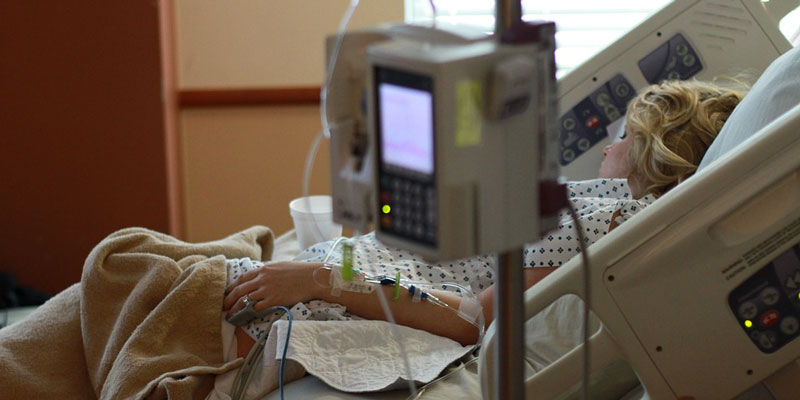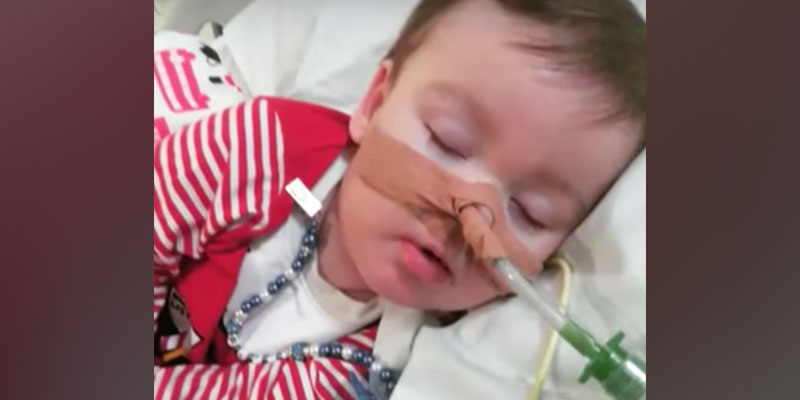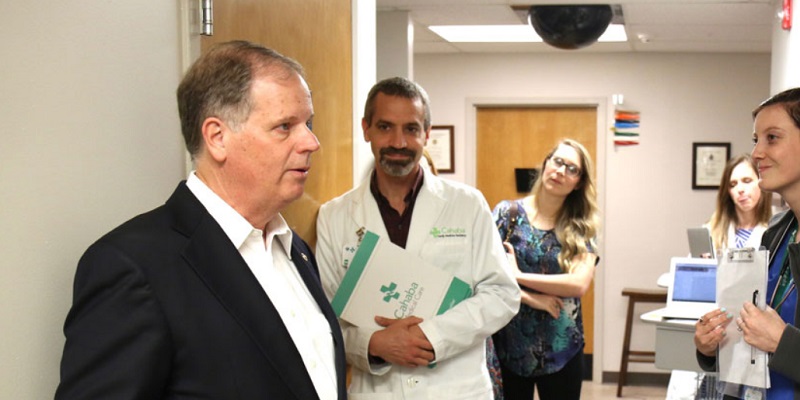The case of Alfie Evans, a terminally ill British infant who died several days after being taken off ventilation, has raised troubling concerns about the state’s authority to intervene in parental rights. But it also has caused some to wonder what they would have done if they were Alfie’s parents.
We often aren’t prepared for the questions that arise in such situations. For example, when should life-sustaining treatment be withdrawn? Do Christians have an obligation to delay death as long as humanly possible? What should we do if we disagree with medical providers about continued treatment of a dying relative?
Such questions are complicated, and the answers often depend on the individual context. But there are certain principles and considerations that can help guide our decisions about withdrawing life-sustaining medical intervention.
Withdrawal is allowable when the fatal condition is irreversible
A primary consideration when determining whether treatment should be withheld or withdrawn is whether the fatal condition is reversible or irreversible.
When a person suffers a potentially fatal threat to their health (e.g., disease, injury), their impaired condition may be either reversible or irreversible. If the condition is reversible, appropriate medical intervention and treatment exists that may possibly restore a person to a state where they are no longer in imminent danger of dying. Medical intervention that restores health and reverses the dying process is known as curative care and should be the first option.
However, if no effective intervention or treatment is possible, the condition is irreversible (i.e., terminal) and the impaired condition will lead to death. This is what is meant when we say that a person is dying, or has entered the dying process.
We can’t always know whether a person’s condition is reversible or irreversible. In most cases, the best we can do is rely on expertise that is based on the collective experience of the medical community. But when the probability is that the condition is irreversible, we are under no moral obligation to continue life-sustaining interventions we believe will be futile.
Withdrawal of treatment should not cause or hasten death
Whether death is imminent or non-imminent, our first consideration for dealing with people in the dying process is that we take no action with the intention of hastening the end of their life. As bioethicist Gilbert Meilander explains, “‘Allowing to die’ is permitted; killing is not. Within these limits lies the sphere of our freedom.”
Withdrawal of treatment is not the same as withdrawal of care
If curative care is not possible because the condition is fatal and irreversible, we still have a duty to provide one of three other types of care:
Symptom care – In some situations, a person may be in the non-imminent dying process. They may suffer symptoms such as shortness of breath that requires medical intervention, such as artificial respiration. Out of respect for life and to prevent unnecessary suffering, all necessary symptom care—a form of palliative care—should be provided until death become imminent.
Comfort care – People in the dying process should not suffer needlessly. When death becomes imminent, palliative care should shift from symptom care to comfort care. The main distinction is that comfort care focuses on providing direct relief from the stress and pain of dying. Comfort care is provided to make the last state of dying as comfortable as possible.
Respect care – The dying process often leads to deterioration of the body. Because a person is often unable to care for their own bodies, they may feel a loss of control. Our duty is to provide such care for people unable to take care of themselves in a way that restores their sense of dignity. We should, for example, ensure that their bodies are adequately cleaned and that they afforded a level of decorum and privacy from unnecessary exposure. No matter what stage a person is in the dying—or living—process, respect care should be provided to all who are in need.
Withdrawal of nutrition or hydration should be a last resort
If food and liquids can be administered through oral means and are capable of providing either comfort or nourishment, we have a moral obligation to provide them as a form of care (Matthew 25:31-45). To actively withhold nutrition or hydration to hasten death is evil. However, there may be situations where artificial nutrition and hydration can cause discomfort, pain, or complications and the most loving form of comfort care would entail withholding nutrition or hydration.
Disagreement should be respectful
Health care workers are under no moral obligation to provide treatments they believe are likely to be futile, harmful, or wholly ineffective. While we may disagree with their judgment, the principle of charity requires that—unless we have evidence to the contrary—we assume their refusal to continue treatment is rooted in concern for the patient. As Christians, we must be careful about unfairly maligning health care providers over disagreements about the best methods of treatment.
That does not mean, of course, that we must always submit to a specific expert opinion. Doctors and nurses are fallible, and there is not always a consensus about whether treatments are effective. If another group of health care providers is willing and able to take on the case, transfer of care is a legitimate option.
Parental authority should be respected, but it is not absolute
In a recent article on the Alfie Evans case, Andrew Walker and I argued that the state much respect the rights of parents:
Parental authority over children is explicit in Scripture (Deut. 11:19; Eph. 6:4). The parent-child relationship is one of divine origin and design, accomplished through the one-flesh union of a mother and father. Scripturally speaking, parents are tasked with raising children. For this reason, the mother and father of a child ought to retain primary authority over the child. This is grounded on the basis of an innate link between parent and child—whether biological or adoptive—and right of the parent over the child. This is both commonsensical and appeals intuitively to our sense of justice.
Although children are a gift to parents from God, all children ultimately belong to God. Parental authority is a sub-authority, ordained and limited by what God allows. Just as parents do not have a the authority to abuse or neglect their child, they do not have the authority to hasten their untimely death.
While parents should be given wide latitude in making medical decisions for the child, healthcare workers have an obligation to oppose parental decisions that may significantly harm their children.
All healing comes from God
Whether God works within the natural laws he has established for health or provides miraculous intervention, we should recognize that all healing comes from God.
“Sometimes it is clear that scientific principles are used to facilitate that healing; sometimes the connection with known science is not so clear,” says the Christian Medical and Dental Association. “We need to give God the credit at all levels of healing, whether we understand the science behind it or not.”
We must also, however, trust God has a purpose for withholding healing and remember that physical death is the expected outcome of human life (Hebrews 9:27). As the Apostle Paul says, “For the wages of sin is death, but the free gift of God is eternal life in Christ Jesus our Lord” (Romans 6:23).
Our loved ones have no reason to fear either death or the eternal consequences of their sin, though, when they believe in Jesus (John 3:16). That is why the most important step an individual can take when preparing their loved one for death is to ensure they know Jesus as their Lord and Savior.
(Courtesy of Ethics and Religious Liberty Commission)













